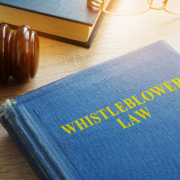Whistleblowers in Healthcare: Exposing Fraud and Patient Safety Issues
In the world of healthcare, where patient well-being is paramount, whistleblowers play a vital role in exposing fraudulent practices and patient safety violations. These courageous individuals, often at great personal risk, step forward to shed light on wrongdoing that can have severe consequences for patients and the healthcare system as a whole.
Whistleblowers in Alabama healthcare come from various backgrounds, including doctors, nurses, administrators, and even patients themselves. They may witness or uncover issues such as unsafe patient care, manipulation of research results, fraudulent billing practices, or kickback schemes.
By speaking out, whistleblowers help protect patients from harm, ensure that healthcare resources are used appropriately, and promote accountability within the industry.
Understanding Healthcare Fraud and Patient Safety Issues in Alabama
Healthcare fraud is a pervasive problem in Daphne and throughout Alabama and beyond. It manifests in various forms, all of which ultimately divert resources away from patient care. Some common examples include:
- Overbilling: Medical providers may submit inflated charges for services rendered or bill for services not actually provided. This practice not only wastes valuable healthcare funds but also distorts the true cost of care, making it difficult for patients and payers to make informed decisions.
- Unnecessary Procedures: Some providers may order unnecessary tests, treatments, or surgeries, exposing patients to unnecessary risks and wasting limited resources. This can be motivated by financial gain, misaligned incentives, or a misguided belief in defensive medicine.
- Upcoding: This involves billing for a more expensive service than the one actually provided, artificially inflating costs, and misrepresenting the level of care given. Upcoding can lead to inappropriate reimbursement and skew quality metrics, obscuring the true performance of healthcare providers.
The False Claims Act (FCA) is a powerful tool for whistleblowers to expose these fraudulent practices. Under the FCA, individuals who report fraud against the government, including Medicare and Medicaid fraud, may be eligible for significant financial rewards if their information leads to a successful recovery of funds. The FCA also provides robust protection against retaliation, ensuring that whistleblowers can come forward without fear of reprisal.
Patient safety issues are another critical area where whistleblowers can have a profound impact. These issues can manifest in various ways, such as:
- Understaffing: When hospitals and clinics are understaffed, healthcare professionals are often overworked and under immense stress, leading to a higher risk of medical errors, delayed care, and compromised patient outcomes. Whistleblowers can expose these unsafe conditions and advocate for adequate staffing levels.
- Improper Hygiene: Failure to follow proper hygiene protocols, such as handwashing, equipment sterilization, and infection control measures, can lead to the spread of healthcare-associated infections (HAIs) and serious complications for patients. Whistleblowers can help uncover lapses in hygiene practices and hold healthcare facilities accountable for maintaining a safe environment.
- Medication Errors: The use of expired, counterfeit, or improperly administered medications can put patients at grave risk. Medication errors can result from inadequate training, poor communication, or systemic issues like understaffing or lack of oversight. Whistleblowers can shed light on these dangerous practices and push for reforms to prevent harm to patients.
The Role of Whistleblowers in Protecting Patients
Whistleblowers have several avenues for reporting wrongdoing in the healthcare system. Many healthcare facilities have internal reporting mechanisms, such as compliance hotlines or anonymous reporting systems, which allow employees to raise concerns without fear of retaliation. Some states also mandate external reporting options, such as contacting state health departments, professional licensing boards, or ombudsman offices.
At the federal level, agencies like the Department of Health and Human Services (HHS) Office of Inspector General (OIG) have whistleblower hotlines and online reporting portals for individuals to report suspected fraud, waste, or abuse in government healthcare programs. The OIG also maintains a list of excluded individuals and entities, which can help whistleblowers identify providers who have been barred from participating in federal healthcare programs due to fraud or other misconduct.
Whistleblowers are protected by a robust legal framework that prohibits retaliation from employers. Laws such as the False Claims Act, the Whistleblower Protection Act, and various state laws provide anti-retaliation provisions that shield whistleblowers from adverse actions like termination, demotion, harassment, or discrimination. These protections are essential for encouraging individuals to come forward without fear of reprisal and ensuring that they can continue to work in their chosen field.
Potential Challenges Faced by Whistleblowers
Despite the legal protections in place, whistleblowers often face daunting challenges when coming forward. One of the most significant barriers is the fear of retaliation. Whistleblowers may worry about being ostracized by colleagues, receiving negative performance reviews, being passed over for promotions, or even losing their jobs. The emotional toll of speaking out against one’s employer can be substantial, and many whistleblowers experience stress, anxiety, and isolation as a result of their actions.
Gathering evidence to support their claims can also be a challenge for whistleblowers. They may not have access to all the necessary documentation, such as medical records, billing data, or internal communications, or may face resistance from those involved in the wrongdoing. In some cases, whistleblowers may need to navigate complex legal procedures, engage in lengthy investigations, and testify in court, which can be time-consuming and emotionally draining.
Another challenge faced by whistleblowers is the potential for professional backlash. Even if they are not directly retaliated against, whistleblowers may find it difficult to advance in their careers or secure new employment due to the stigma associated with speaking out. Some may face blacklisting or informal ostracism within their industry, making it challenging to continue working in their chosen field.
The Silent Protectors
Whistleblowers are the unsung heroes of the healthcare system, bravely stepping forward to expose fraud and patient safety violations that can have devastating consequences. By shining a light on wrongdoing, whistleblowers help protect patients, safeguard healthcare resources, and promote a culture of accountability and integrity within the industry.
By coming forward, you have the power to make a real difference in the lives of patients and the integrity of the healthcare system. Your courage and commitment to doing what is right can help prevent fraud, protect patient safety, and ensure that healthcare resources are used for their intended purpose – to provide the highest quality care to those in need.
Contact Coumanis & York P.C. for Whistleblower Legal Representation in Alabama
At Coumanis & York P.C., we have a deep understanding of the challenges faced by healthcare whistleblowers and a proven track record of successfully representing them in fraud cases. Our experienced legal team is dedicated to protecting the rights of whistleblowers and ensuring they receive the support they need to make a positive impact on the healthcare system.
If you have any questions or concerns about healthcare fraud or patient safety issues, we encourage you to contact us today for a free case evaluation. Our dedicated team is here to listen, guide, and support you every step of the way.









Leave a Reply
Want to join the discussion?Feel free to contribute!